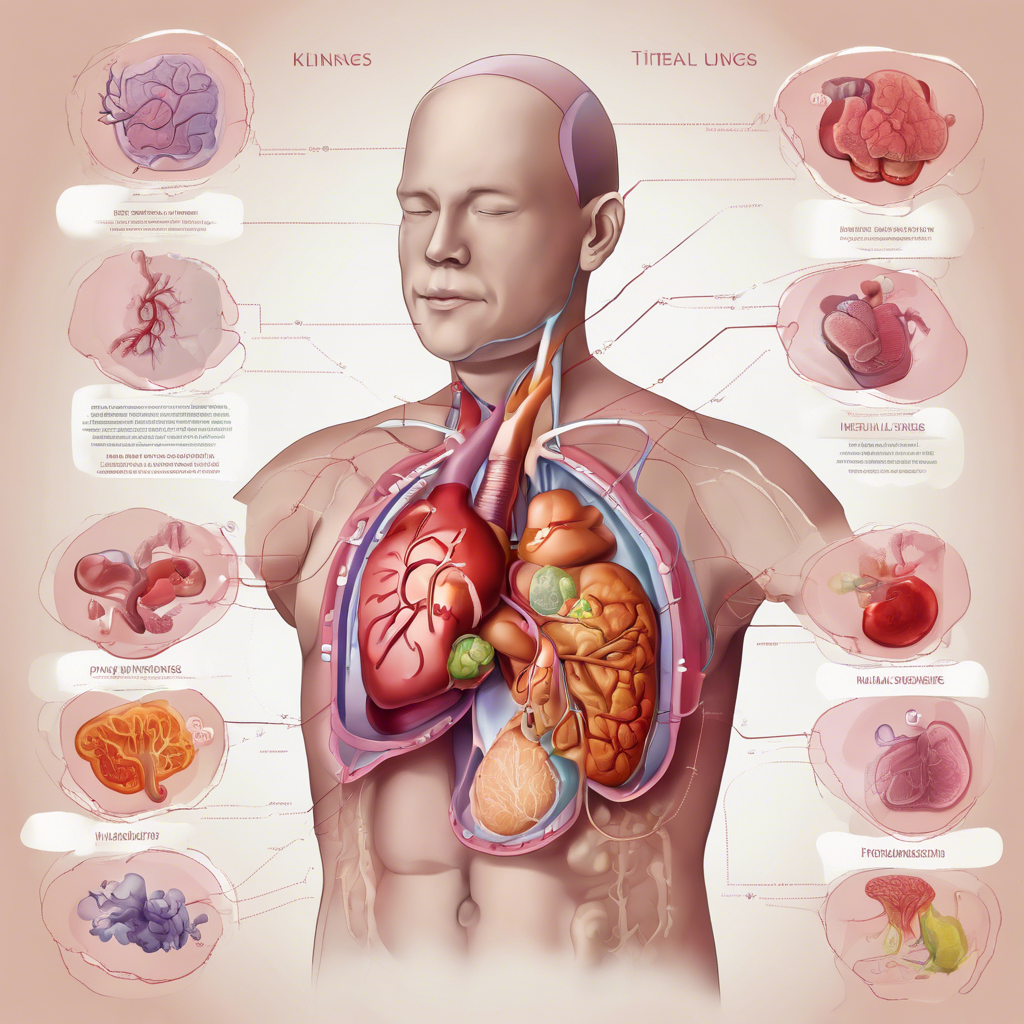The human body is a complex and intricate system composed of numerous organs, each serving critical functions that are essential for maintaining health and vitality. This white paper aims to explore the various organs, their purposes, and the vital functions they perform. Furthermore, it will emphasize the importance of caring for these organs to prevent premature wear and tear caused by foreign substances and unhealthy lifestyles, which can ultimately lead to a diminished quality of life.
Key Organs and Their Functions
1. Heart
Function: The heart is a muscular organ that pumps blood throughout the body. It supplies oxygen and nutrients to tissues while removing carbon dioxide and waste products.
Importance: A healthy heart is essential for overall circulation and energy levels. Cardiovascular diseases can severely impact life expectancy.
2. Lungs
Function: The lungs are responsible for the exchange of oxygen and carbon dioxide. They facilitate breathing and oxygenate the blood.
Importance: Proper lung function is crucial for respiration. Impaired lung health can lead to conditions like asthma and chronic obstructive pulmonary disease (COPD).
3. Liver
Function: The liver processes nutrients from food, detoxifies harmful substances, and produces bile for digestion.
Importance: The liver plays a critical role in metabolism and detoxification. Liver disease can have severe consequences, including failure and the need for transplantation.
4. Kidneys
Function: The kidneys filter blood, remove waste, and regulate fluid balance, electrolytes, and blood pressure.
Importance: Healthy kidneys are vital for waste management and maintaining homeostasis. Kidney disease can lead to serious complications and requires dialysis or transplantation.
5. Brain
Function: The brain controls all bodily functions, processes sensory information, and is responsible for cognition, emotions, and memory.
Importance: Brain health is paramount for overall well-being. Neurodegenerative diseases can lead to debilitating conditions, affecting quality of life.
6. Stomach and Intestines
Function: The stomach and intestines are part of the digestive system, breaking down food and absorbing nutrients.
Importance: Effective digestion is essential for nutrient absorption. Disorders can lead to malnutrition and other health issues.
7. Skin
Function: The skin protects the body from external harm, regulates temperature, and facilitates sensation.
Importance: Skin health is crucial for protection against infections and environmental factors. Poor skin care can lead to chronic conditions.
The Importance of Caring for Our Organs
Maintaining the health of our organs is vital for longevity and quality of life. Foreign substances such as toxins, excessive alcohol, unhealthy foods, and pollutants can cause premature damage to these vital organs.
Consequences of Neglect
1. Shortened Lifespan: Chronic diseases resulting from neglect can significantly reduce life expectancy.
2. Reduced Quality of Life: Illnesses can lead to chronic pain, mobility issues, and mental health challenges.
3. Economic Burden: Healthcare costs for managing chronic diseases can be substantial, impacting both individuals and healthcare systems.
Preventative Measures
– Healthy Diet: Consuming a balanced diet rich in fruits, vegetables, whole grains, and lean proteins supports organ health.
– Regular Exercise: Physical activity promotes cardiovascular health, weight management, and overall well-being.
– Avoiding Toxins: Limiting exposure to harmful substances like tobacco, excessive alcohol, and environmental pollutants is crucial.
– Regular Check-ups: Routine medical check-ups can help in early detection and prevention of diseases.
Conclusion
The human body’s organs work in harmony to sustain life, and each plays a significant role in overall health and well-being. Taking care of these vital organs through a healthy lifestyle and proactive healthcare can prevent premature damage and contribute to a longer, healthier life. Ignoring the importance of organ health can lead to a sad and untimely end, highlighting the necessity of prioritizing our body’s needs.

The content provided in this article/blog post/press release/white paper is for informational purposes only and does not constitute medical advice. We are not medical professionals, doctors, or scientists, and our statements should not be interpreted as such.
While we strive to provide accurate and up-to-date information, we encourage readers to seek the guidance of qualified healthcare providers for any medical concerns or questions regarding treatment options.
The information provided herein is intended to support, not replace, the relationship that exists between a patient and their physician or other healthcare provider. Always consult with a licensed medical professional before making any decisions regarding your health and treatment.
By reading this content, you acknowledge that you understand and accept this disclaimer.